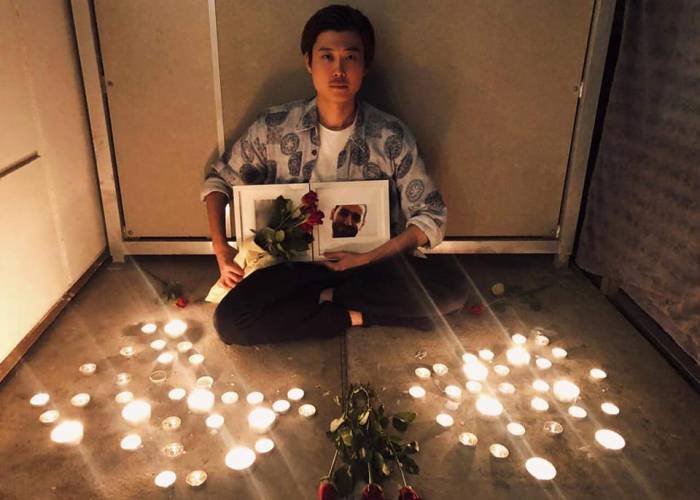(Zaman Al Wasl)- After three years of in-depth research, Icchiku Yamada, a Japanese researcher, got a master's degree in Genocide Studies from the University of Tokyo. Through his thesis, titled “A study on the Conceptual Framework for Genocide: the Issue of the Genocide of Civilians in the Syrian War”, Yamada tried to document history and to uncover the crimes of the Assad regime with irrefutable facts and documents.
At the beginning of the revolution in 2011, Yamada was shocked by the fearlessness of the Syrians who risked their lives to demand their basic human. “What courage…” he exclaimed. “I still remember the joy and fear in their young faces. Now, most of them were unfortunately killed.”
He explained that while many Japanese were brainwashed by the regime’s propaganda, he did not know much about Syria. However, that moment of discovery has made the Syrian revolution part of his life for over nine years.
The turning point, according to Yamada, was when he watched a movie about Abdulbasset al-Sarrout, a prominent figure from the revolution who seemed to call, “Brother, are you still ignoring our screams?”
After that, he organized his first public event in Syria, and in 2017, he founded the Stand with Syria Japan (SSJ) organization.
Yamada explained that, through his academic research, he wanted to honor the martyrs and support the survivors of the Syria massacre in all possible ways, humanitarian as well as academic.

He soon realized that Assad's prisons are different from what he had seen in other countries, and that academic research on this topic was limited despite various human rights reports, which led him to pursue the field of Genocide studies. After three years of research and investigation into this horrific field, he wrote a 184-page master’s thesis that addressed the horrors inside the regime’s prisons.
Icchiku relied on UN and other human rights organization reports as well as the Caesar photographs and investigated public statements of the most prominent figures in the regime, using previous research in genocide studies to analyze the evidence.
He invested most of his time in gathering oral testimonies from the families of martyrs and survivors of Assad's prisons, since, according to him, they presented the strongest and most accurate evidence.
Yamada said that he encountered some difficulties during his research, especially in interviews with survivors, whose suffering and wounds must run deep. “Some broke down while explaining the ways they have been tortured, some witnessed the deaths of their friends, and some felt ashamed of talking about being sexually assaulted,” he said.
The source interviewed more than 30 survivors and Syrian families, despite many refusing to continue their interviews.
He added that he himself was affected despite having experience in the field, finding himself, after each interview, in a state of dreadful despair. However, it made him proud for the strength he learned from both martyrs and survivors, and the value of life and dignity.
Yamada, who currently lives in Germany, said that what is happening in Syria, and especially in its prisons, is a defining moment of the 21st century and that the absolute violence with the intention of entirely or partly destroying certain groups is tantamount to an extermination machine.
Yamada believes that the silence of the world about the genocide of the Syrian people is the final form of humanity’s corruption. The attitude of “neutrality” based on the idea that it is a “civil war” rather than a revolution is merely a pretext used to escape the horrific reality of what is actually happening, as silence is easier and more comfortable that standing with justice.
The researcher concluded by expressing his hope that his academic efforts will stand as witness and a bridge towards understanding the Syrian situation and towards sharing part of the suffering of its people, the brave men and women who sacrificed everything in their struggle for freedom and humanity.
By Faris Rifai
Zaman Al Wasl
















Comments About This Article
Please fill the fields below.